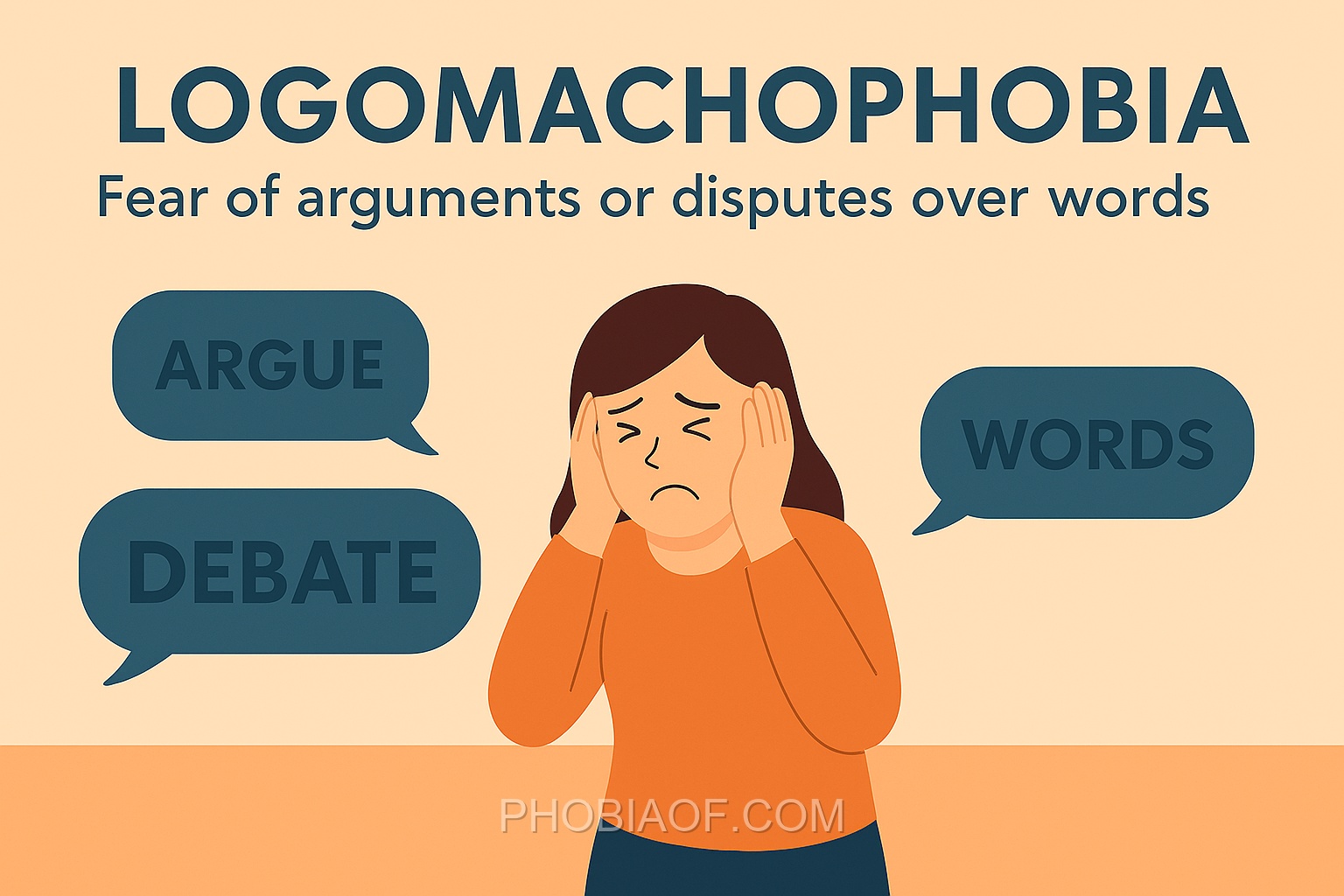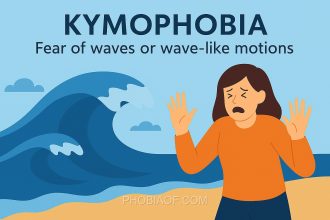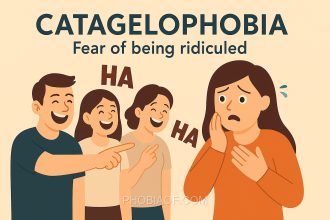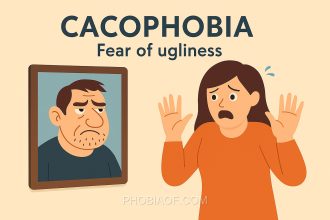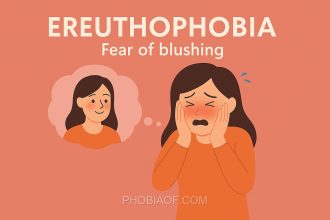Have you ever found yourself avoiding debates or discussions because you fear the potential for arguments? If so, you might be experiencing something known as Logomachophobia.
Logomachophobia is a term used to describe the fear of arguments or disputes over words. The word itself is derived from the Greek roots: “logo” meaning “word” and “machia” meaning “battle.” This phobia can lead to significant anxiety for those who experience it, as they may go to great lengths to avoid situations where disagreements over language or phrasing might occur.
People with logomachophobia may find it challenging to engage in conversations that have the potential to become contentious. This fear can manifest in various ways:
- They might refrain from participating in discussions where differing opinions are expected.
- They may experience anxiety when they anticipate a debate over terminology or phrasing.
- In some cases, they might avoid social interactions altogether to prevent possible disputes.
Understanding logomachophobia is crucial because it can significantly impact one’s personal and professional life. By recognizing this fear, individuals can seek strategies to manage their anxiety and communicate more effectively, even when disagreements arise.
Causes of Logomachophobia
Logomachophobia, the fear of words, can arise from various factors. Understanding these causes can help in managing and addressing this unique phobia. Here are some common reasons why someone might develop logomachophobia:
- Genetic Predisposition:
Like many other phobias, logomachophobia may have a genetic component. If individuals have family members with anxiety disorders or specific phobias, they might be more susceptible to developing similar fears.
- Traumatic Experiences:
Experiencing or witnessing a traumatic event involving words, such as being harshly criticized or ridiculed, can lead to a lasting fear of words. This trauma can create negative associations that trigger anxiety.
- Learned Behavior:
People can develop phobias by observing others. If a child grows up around someone with a pronounced fear of words or communication, they might learn to mimic these behaviors.
- Environmental Factors:
Stressful environments, such as high-pressure academic or professional settings, can exacerbate fears related to words. Constant exposure to criticism or failure in these contexts might contribute to the fear.
- Psychological Factors:
Underlying anxiety disorders or low self-esteem can heighten the fear of words. Individuals who doubt their abilities or fear judgment may develop a heightened sensitivity to words and language.
Some interesting theories suggest that logomachophobia might also be linked to a deeper fear of communication or expressing oneself. Research into phobias continues to explore how complex interactions between genetic, psychological, and environmental factors contribute to their development.
Symptoms of Logomachophobia
Logomachophobia is characterized by an intense and persistent fear or anxiety when faced with words or verbal communication. This phobia can manifest in various ways, impacting both physical and emotional well-being. Recognizing these symptoms is crucial in understanding and addressing this phobia.
Physical Symptoms:
- Panic attacks, which may include a sense of impending doom or loss of control.
- Increased sweating, particularly in stressful situations involving words or communication.
- Rapid heartbeat or palpitations, which can be triggered by the thought of engaging with words.
- Trembling or shaking, especially when confronted with situations that involve reading or speaking.
- Shortness of breath or hyperventilation when faced with verbal tasks.
Emotional and Behavioral Symptoms:
- An overwhelming dread or anxiety at the thought of reading, writing, or speaking.
- Avoidance of situations where words or verbal communication are prominent, such as public speaking or social gatherings.
- Feelings of helplessness or being trapped when required to deal with words.
- Difficulty concentrating or staying focused due to anxiety about words.
- Irrational thoughts or beliefs about the impact or danger of words.
When severe, these symptoms can significantly interfere with daily life, affecting educational, occupational, and social functioning.
Treatment for Fear of Arguments or Disputes Over Words
If you are experiencing a fear of arguments or disputes over words, known as Logomachophobia, it’s important to know that you are not alone, and this phobia can be treated and managed over time. With the right approach and support, you can overcome this fear and improve your quality of life.
Here are some proven treatment options and coping strategies to consider:
Therapies
- Exposure Therapy: This involves gradually facing the fear in a controlled and safe environment. With the guidance of a therapist, you will slowly be exposed to situations that trigger your fear, helping you to become less sensitive over time.
- Cognitive-Behavioral Therapy (CBT): CBT aims to change the negative thought patterns associated with your fear. Through this therapy, you can learn to reframe your thoughts and develop healthier responses to situations that involve arguments or disputes.
- Counseling: Talking to a counselor can provide you with a safe space to explore your fears and anxieties. Together, you can work on understanding the root of your phobia and develop strategies to manage it effectively.
Self-Help Coping Techniques
- Relaxation Exercises: Techniques such as deep breathing, progressive muscle relaxation, or guided imagery can help reduce anxiety and calm your mind when faced with fear-inducing situations.
- Meditation: Practicing mindfulness and meditation can increase your awareness of your thoughts and emotions, helping you manage them more effectively.
- Support Groups: Joining a support group can provide you with a sense of community and understanding from others who share similar experiences. Sharing your journey and hearing others’ stories can be incredibly empowering.
Medication
In severe cases, medication such as anti-anxiety medications might be prescribed by a healthcare professional. However, it’s important to focus primarily on therapy and coping skills as the foundation of treatment.
Remember, seeking professional help is a courageous step towards managing your phobia. If Logomachophobia is interfering with your daily life, don’t hesitate to reach out to a mental health professional who can guide you on the path to recovery.
You have the strength to overcome this fear, and with time and support, you can learn to navigate situations involving arguments or disputes with confidence and ease.
Conclusion
Understanding the causes and symptoms of logomachophobia can significantly empower individuals to address this unique fear effectively. Recognizing the underlying triggers and how they manifest can be the first step toward managing and overcoming the fear of arguments or disputes over words.
It’s important to remember that many people successfully manage or even overcome their phobias with time and the right support. By acknowledging the fear and seeking appropriate help, such as therapy or professional guidance, individuals can begin to take control of their emotional responses and build resilience.
In conclusion, if you or someone you know is struggling with logomachophobia, consider reaching out to a therapist or talking to a doctor. Professional support can provide tailored strategies and reassurance, paving the way for a more confident and fearless engagement with the world. With patience and perseverance, overcoming such fears is entirely possible.
Stay hopeful and proactive on your journey to understanding and managing logomachophobia. Remember, you are not alone, and help is always within reach.
